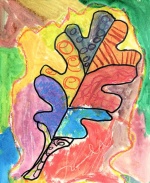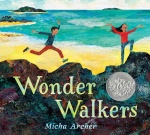Wisdom Begins in a State of Wonder
May 11, 2024
Quote of the Week
"One way to open your eyes is to ask yourself, "What if i had never seen this before? What if i knew i would never see it again?" -- Rachel Carson
Why The Sky Is Blue

Children, especially younger ones, often ask such seemingly simple yet profound questions. We bring to you a 1968 talk by Dr CV Raman who was India's first Nobel Laureate in Physics in 1930. Read here. He illumines how a discovery-led approach to children's inquisitiveness offers significantly greater value than summarily jumping to answers. In particular, he advocates for re-focusing science as a spirited exercise of life "behind and beyond the laboratory", appreciating everyday phenomena and the role of process-based understanding in the context of children and youth.
Inspiring blurbs:
"I chose this subject for the simple reason that this is an example of something you do not have to go to the laboratory to see. Just look up look at the sky. And I think it is also an example of the spirit of science. You learn science by keeping your eyes and ears open and looking around at this world. The real inspiration of science, at least to me, has been essentially the love of nature. Really, in this world, wherever we see, we see all kind of miracles happening in nature. To me, everything I see is something incredible something absolutely incredible. We take it all for granted. But I think the essence of the scientific spirit is to look behind and beyond and to realize what a wonderful world it is that we live in. And everything that we see presents to us not a subject for curiosity, but a challenge, a challenge to the spirit of human to try to understand something of this vast mystery that surrounds us. [...]
The interesting point is that it is easy to answer that question in a casual way. If you ask a Botanist, why are leaves green? S/he murmurs, 'Chlorophyll'. Finished. You see all scientific questions can be disposed of in that summary fashion, in one or two words. You can surely pass your examinations with that kind of answer, but that is not the real answer. As I said before, the scientific challenge of nature is to think not only to discover but also to think, to think continually and to try to penetrate this mystery: "Why is it blue?" "
We recommend this reading for parents and caretakers, teachers, and elder children preferably 12 and above.
Reading Corner
 Name: Wonder Walkers
Name: Wonder Walkers
Author and Illustrator: Micha Archer
Ages: 7+
"When two curious kids embark on a "wonder walk," they let their imaginations soar as they look at the world in a whole new light. They have thought-provoking questions for everything they see: Is the sun the world's light bulb? Is dirt the world's skin? Are rivers the earth's veins? Is the wind the world breathing? I wonder . . . Young readers will wonder too, as they ponder these gorgeous pages and make all kinds of new connections. What a wonderful world indeed!" -- Publishers
Be the Change
Try the 'wonder walk' with children. Make a few stops in between and encourage them to draw up a couple 'I wonder...' statements. As Socrates put it -- wisdom begins in wonder!





